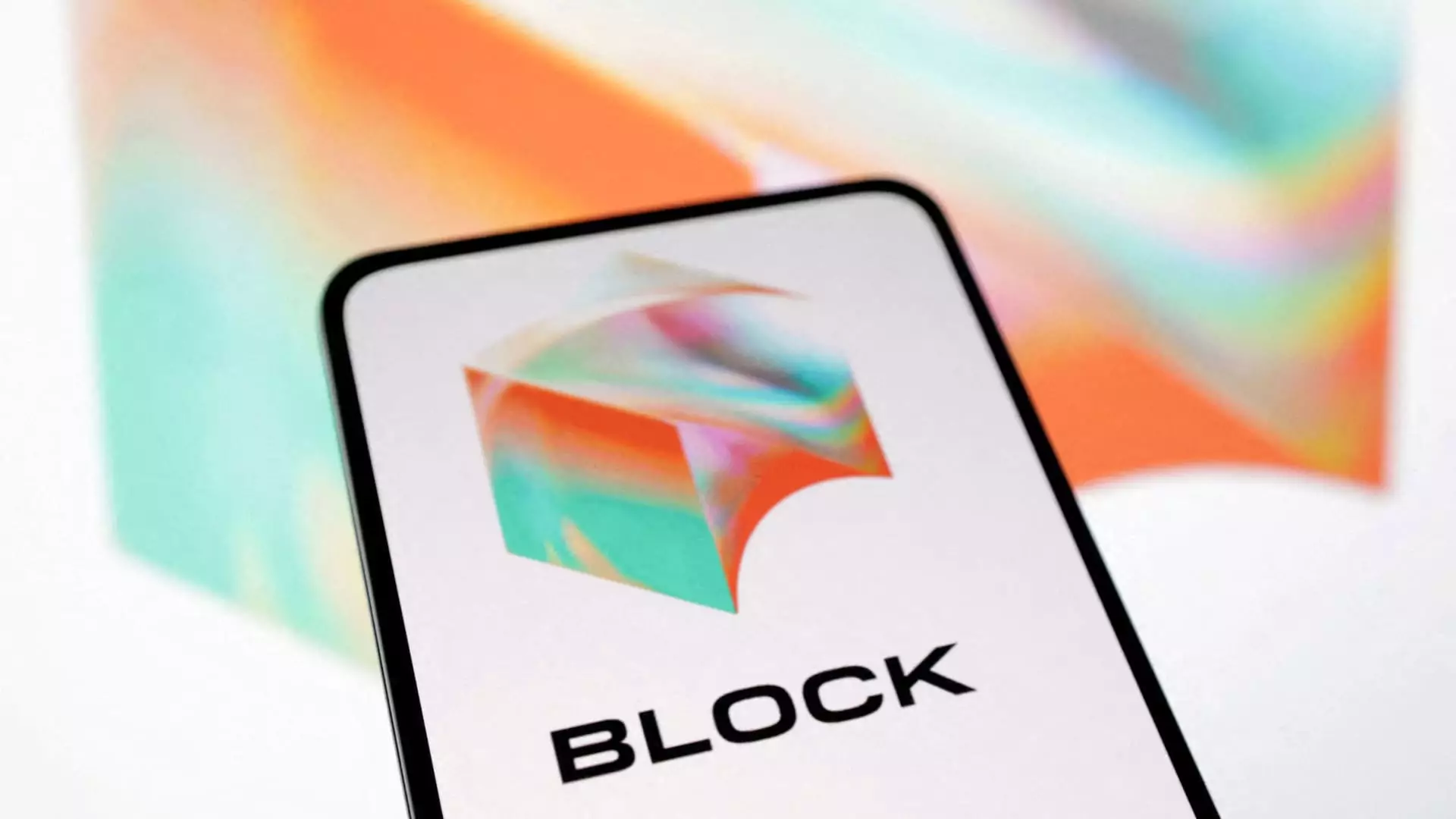In a landscape teeming with volatility, Block, the company formerly known as Square, recently unveiled its third-quarter earnings that sparked varied reactions among investors and market analysts. While the financial numbers fell short of Wall Street’s projections, the narrative surrounding profitability and strategic innovation illuminated potential avenues for future growth. This article delves into the latest quarterly results, profitability metrics, and the underlying strategies that Block is leveraging as it navigates the ever-evolving financial technology sector.
Block reported adjusted earnings per share of 88 cents, marginally exceeding the anticipated 87 cents while revenue came in at $5.98 billion, which notably lagged behind the expected $6.24 billion. This mixed performance concerning revenue did not escape investor scrutiny after hours, resulting in an initial stock decline. However, the company’s strong gross profit, totaling $2.25 billion and marking a 19% year-over-year increase, caught the attention of many investors, alleviating some immediate concerns.
The financial narrative presented by Block’s Chief Financial Officer, Amrita Ahuja, emphasized a strategic pivot towards gross profit rather than total revenue. This shift in focus underscores a growing trend within the investment community, where qualitative performance metrics are becoming increasingly important for assessing company health and future growth prospects.
One of the standout performers within Block’s portfolio is the Cash App platform, a major contributor to the firm’s financial success. The Cash App generated a gross profit of $1.31 billion, reflecting a robust 21% increase compared to the previous year. This segment is critical not only for profitability but also for user engagement, as the number of monthly active users for the Cash App Card rose by 11%, surpassing 24 million users.
Despite reporting a gross payment volume of $62.4 billion, which fell short of the $64.3 billion market expectations, Block’s enhanced cost structure presents a silver lining. The expectation of a gross profit increase of 14% for the fourth quarter further solidifies optimism around the Cash App’s growth trajectory, potentially positioning it for sustained success.
As Block seeks to redefine financial services through innovation, the company’s acquisition of Afterpay paired with its existing lending products signals a deeper foray into the buy now, pay later (BNPL) space. CEO Jack Dorsey’s quarterly letter to shareholders mapped out a vision for transformative lending solutions, detailing offerings like Square Loans and Cash App Borrow. The aim is to evolve the Cash App Card into a formidable alternative to traditional credit cards through Afterpay integration.
Crucially, Block is employing artificial intelligence to enhance decision-making in lending, which aids in managing risk and ensuring agile underwriting for their consumer and business clientele. The impressive loss rates across their lending products—about 1% for BNPL, 3% for Cash App Borrow, and 4% for Square Loans—demonstrate this operational efficiency. Kevin Kennedy from Third Bridge commented on lending as a key engine for Cash App’s monetization, projecting a promising outlook for Block’s revenue streams.
Despite these encouraging developments, Block is also embracing cost-cutting measures in response to shifting priorities and market conditions. Its decision to reduce investments in the Tidal music-streaming service and phase out the Bitcoin-focused arm, TBD, illustrates the company’s resolve to streamline operations. Layoffs earlier in the year were part of this broader strategy to bolster financial health and redirect resources towards higher-impact initiatives.
Jack Dorsey has reiterated the company’s commitment to making Bitcoin more accessible through Cash App while maintaining a position of approximately 8,300 bitcoins on its balance sheet, valued at about $630 million. This stance indicates a willingness to adapt to market dynamics while balancing traditional payment processing with emerging digital currency trends.
Block’s third-quarter performance reflects a complex interplay of challenges and opportunities. While revenue figures may have underperformed expectations, the company’s strategic emphasis on gross profit, robust growth in its Cash App segment, and innovative lending initiatives reveal a landscape rich with potential for future expansion. As Block recalibrates its focus, investors and analysts will be watching closely to see how the company continues to adapt and thrive in a fast-paced fintech environment.

